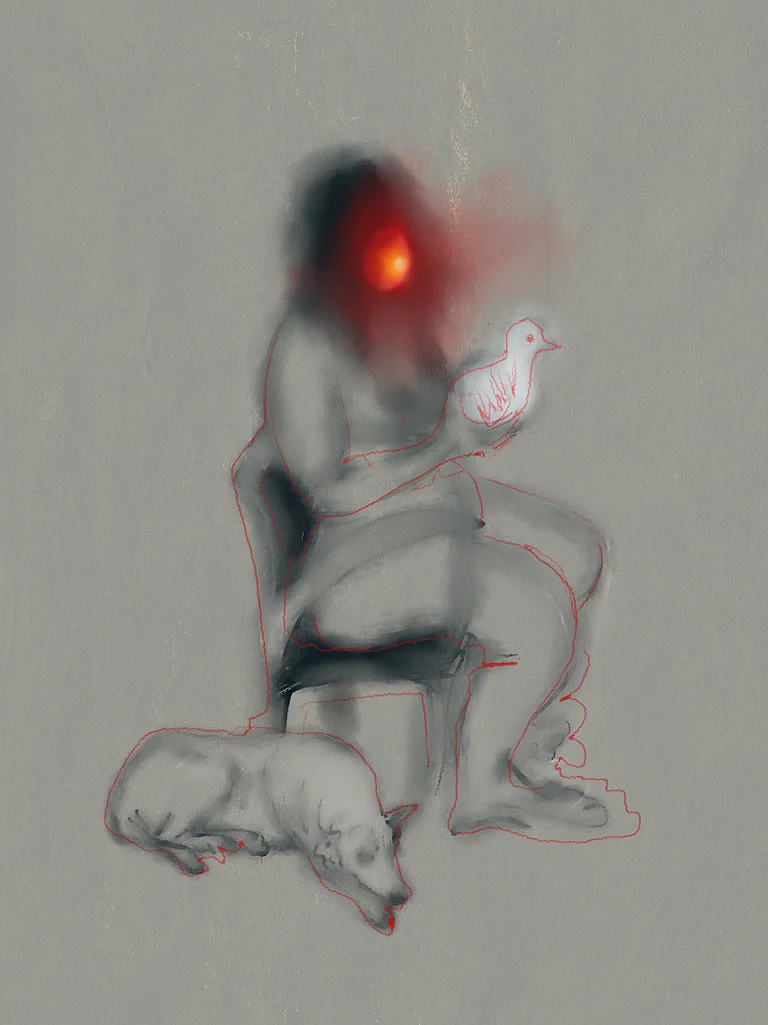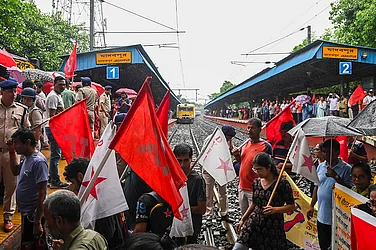The sudden demise of Sheila Dikshit (81), on Saturday, came at a time when she was busy charting the revival of the Congress party in Delhi despite her failing health and was hopeful that her efforts had begun to yield fruit.
The national capital is due for assembly polls in less than a year. Dikshit, despite many within the Congress lately questioning her political instincts, was certain that the party would make impressive gains – though she was forthright enough to admit that returning to power was an unrealistic target. She firmly believed that the 2013 decimation of the Grand Old Party in Delhi at the end of her 15-year reign as chief minister would not be the hallmark of her nearly four-decade-long political career which had been marked with impressive highs and equally baffling lows.
Born into an affluent Kapoor family on March 31, 1938, in Punjab’s Kapurthala, Dikshit had done her schooling and college in Delhi. It was during her college days at Delhi’s prestigious Miranda House in the late 1950s when Sheila Kapoor became friends with Vinod Dikshit, son of Umashankar Dikshit, an influential Congress leader. As Dikshit recalls in her memoirs, Citizen Delhi: My Times, My Life, Vinod stunned her with his marriage proposal while the two were travelling in a DTC bus sometime in 1958. While she accepted, it wasn’t until July 1962 that the two married – Vinod had been selected for the Indian Administrative Services (IAS) in 1959.
Being the daughter-in-law of Umashankar Dikshit, a close aide of Indira Gandhi who had stayed by the side of the former Indian premier during her tumultuous years of the Congress split in 1969 and then during the Emergency years, Sheila had a ringside view of various landmarks in India’s contemporary political history. Dikshit helped her father-in-law, who served as a cabinet minister under Indira Gandhi during the early 1970s and then as Governor of Karnataka and Bengal, manage his busy public engagements.
Given the proximity that Umashankar Dikshit had with the Nehru-Gandhi household, it was obvious that Sheila too had been noticed by the Congress party’s first family. While managing her father-in-laws routine had already initiated her into public life, it wasn’t until 1984 that Dikshit got a taste of the grisly world of electoral politics. In the run-up to the 1984 Lok Sabha elections, conducted soon after the assassination of Indira Gandhi, it was Rajiv Gandhi who suggested to Umashankar Dikshit that Sheila should contest the upcoming polls from a seat in Uttar Pradesh.
Kannauj, a place Sheila Dikshit had never visited until then, was chosen as her constituency and riding on the back of a Congress wave and the clout of her father-in-law in UP’s politics, she scored an easy win. Thus began Sheila Dikshit’s political innings, as the Lok Sabha MP from Kannauj who, within just 18 months of her first electoral victory, went on to become a junior minister in the Rajiv Gandhi cabinet.
In 1987, while she was on an official visit to New York, news came of the untimely and shocking demise of her husband, Vinod Dikshit, who had suffered a major cardiac arrest. With her husband’s passing, Dikshit drowned herself into political engagements.
Dikshit’s stint as an MP from Kannauj in 1984 would be her only brush with victory in a Lok Sabha election. She went on to contest the general elections again in 1989 (from Kannauj) but lost. After the passing away of her father in May 1991, days after the assassination of Rajiv Gandhi, Dikshit decided to shift political base to Delhi completely. With her influential father-in-law no more and Rajiv’s widow, Sonia Gandhi, not inclined to join active politics, the going wasn’t easy for Sheila Dikshit. A falling out with P.V. Narasimha Rao, who became Prime Minister in 1991, didn’t help matters for her neither did her stint in the short-lived Congress (Tiwari) faction of the Grand Old Party prove to be a good political move.
It wasn’t until mid-1998 that Dikshit would return to electoral politics, contesting this time from the East Delhi Lok Sabha seat, only to be defeated by the BJP’s L.B. Tiwari by a margin of about 45,000 votes.
But, things began to look up and how! By October 1998, with Sonia Gandhi at the helm of the Congress party, Sheila Dikshit was given command of the Congress’ Delhi unit, preferred over local stalwarts like H.K.L Bhagat, Sajjan Kumar, Jagdish Tytler, J. P. Aggarwal and others. Dikshit chose to contest the assembly polls from the Gole Market constituency. Not only did she win, but she led her party to victory too and, with Sonia Gandhi firmly backing her, went on to become Delhi’s chief minister, a stint that would last a good 15 years and establish her as the grand matriarch of politics in the national capital. It was purely on the back of her popularity that her son, Sandeep Dikshit, managed to wrest the East Delhi Lok Sabha seat for the Congress in the 2004 and 2009 Lok Sabha polls. These 15 years saw major development works across Delhi, including the construction of the Delhi Metro and a large number of flyovers.
If the period between 1998 and 2013 saw Dikshit emerge as the final word on Congress politics in Delhi, the years that followed were a constant struggle. By 2013, even Dikshit’s closest supporters began admitting in private that she was losing her “golden touch” and that she should retire gracefully. Dikshit refused to budge. By now, Ajay Maken, once her protégé, had turned against her and was leading a rival camp in Delhi Congress as were other leaders like J. P. Aggarwal.
Perhaps, she truly was losing her political instinct. When the Nirbhaya gangrape incident shook the entire nation and protestors jammed the streets of New Delhi, Dikshit’s utterly insensitive “these things happen” remark swiftly eroded the goodwill that she enjoyed. What made matters worse for her was her poor handling of the massive anti-corruption campaign that was being led by Arvind Kejriwal and his newly founded Aam Aadmi Party in Delhi. Kejriwal had accused Dikshit of financial irregularities in the organisation of the Commonwealth Games that were held in Delhi in 2010 and the chief minister had no real defence.
In the 2013 Assembly polls, Dikshit lost her New Delhi assembly seat to Kejriwal, a debutante politician, while the Congress too was swept out of power. By now, the Congress party too was facing the heat nationally with an aggressive BJP battering the party daily with allegations of various scams in the allotment of the 2G spectrum, coal blocs, etc. A year later, the Congress was routed nationally and the Nehru-Gandhi brand had taken a severe beating.
It was in these circumstances that Dikshit’s clout in the Delhi Congress began to wane as Rahul Gandhi preferred to push Ajay Maken into prominence. The 2015 assembly polls, held after the collapse of the first AAP government that had given way to a spell of President’s Rule, saw the Congress failing to win a single seat in the same Delhi assembly where it had commanded a majority under Dikshit for 15 straight years.
Then, in a move that appeared devoid of any political logic, Dikshit grudgingly agreed to the Congress party’s decision of projecting her as the chief ministerial candidate in Uttar Pradesh, a state where the Grand Old Party had had no electoral presence for nearly two decades, in the 2017 assembly polls. She began campaigning in the state where she was last politically active in the 1980s, only to be stunned weeks later when Rahul Gandhi struck a pre-poll pact with Akhilesh Yadav’s Samajwadi Party. The Congress-SP alliance came a cropper and Dikshit was back in political wilderness in Delhi.
It was only in 2018 that Rahul decided to appoint Dikshit as president of the Delhi Congress after replacing Ajay Maken, a decision that many scoffed at given Dikshit’s already frail health. Dikshit had been under treatment for cardiac problems and even had undergone a surgical procedure at the University Hospital in Lille, France. Nonetheless, she began her political rounds across Delhi once again, trying to rebuild the party that had all but collapsed in the national capital in the six years since the 2013 assembly poll rout.
Ahead of the 2019 Lok Sabha polls, while Maken, along with Congress in-charge of Delhi P. C. Chacko lobbied hard for a pre-poll alliance with Kejriwal’s AAP, Dikshit stridently pushed the “go it alone” line. Even Rahul Gandhi’s insistence for a pact with AAP didn’t make her change her stand and she is learnt to have told the Congress president forcefully that Kejriwal was not to be trusted. Many believed that Dikshit’s aversion to an alliance with AAP was borne out of her personal grudge against Kejriwal, the political greenhorn who had ended her reign in 2013.
Finally, when the Congress did go alone in the Lok Sabha polls, Dikshit too was asked to contest from the North East Delhi seat. She fought and lost as did all other Congress candidates but her prediction of a Congress revival in Delhi came true to some extent as the party finished second on five of Delhi’s seven Lok Sabha seats. In 2014, the Congress had finished a distant third on all seats. Additionally, in the assembly-wise break-up of the Lok Sabha results, the Congress had finished second in over 30 of Delhi’s 70 seats while it came first in 12 other segments.
During the past week, even as her health began to decline again and she was under the daily supervision of Dr Ashok Sen, chairman of the Fortis Escorts Heart Institute, Dikshit was busy revamping the Delhi Congress, a decision that irked P.C. Chacko. Chacko went public with his criticism of Dikshit but the latter remained undeterred, convinced that she was overseeing a revival of the party that would help the Congress make significant gains in the assembly polls due early next year.
Whether Dikshit did indeed succeed in making her party battle-ready for the assembly polls is now anybody’s guess and it will be left to her successor to carry forward her plans or draft a new one entirely. What is certain though, is that with Dikshit’s passing, the Congress has lost its most trusted face in the national capital.


























